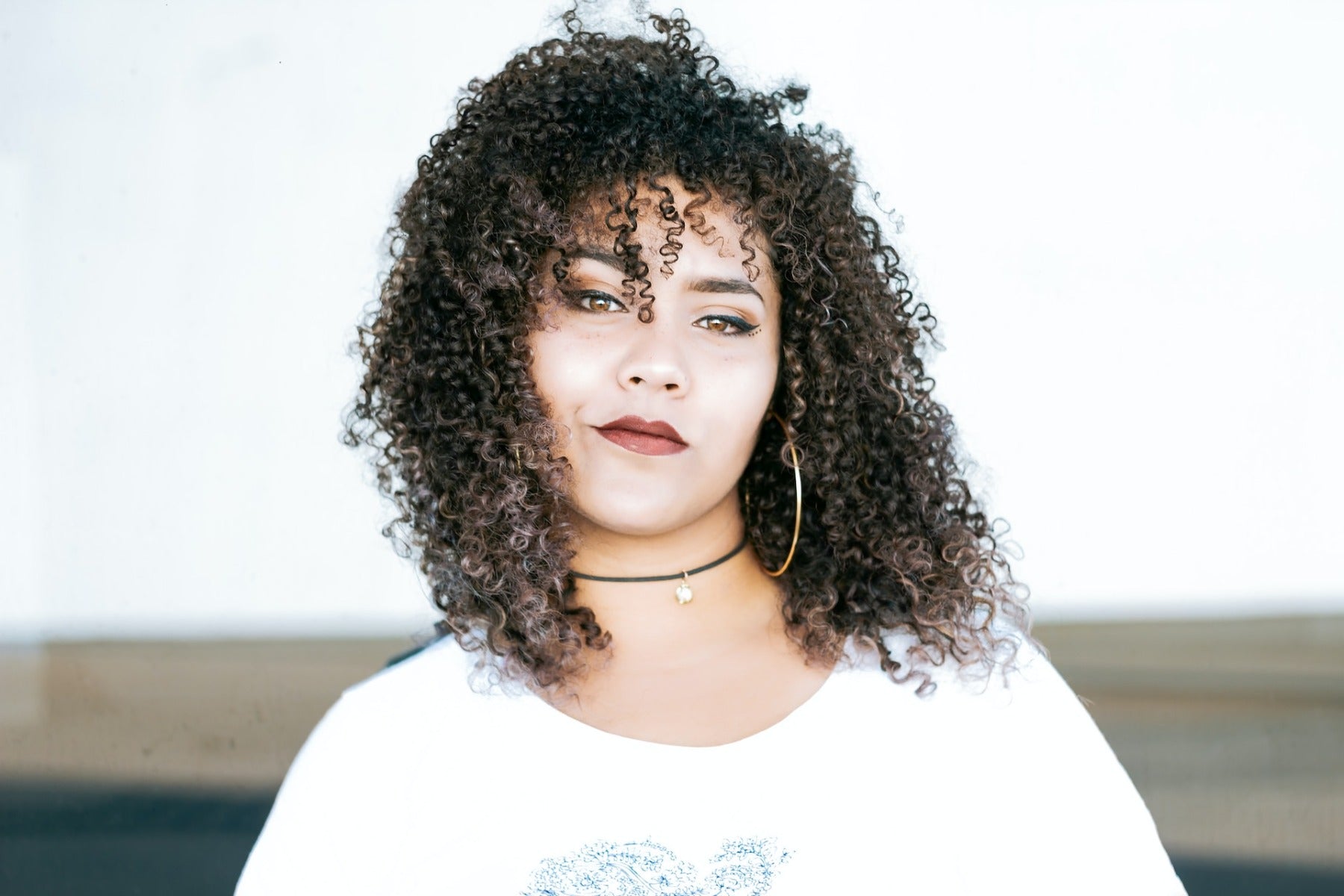→ In this article, we'll help you understand the causes of menopausal hair thinning and provide helpful tips on how to promote healthy regrowth. From nutritional adjustments to choosing the right hair care products, implementing gentle styling techniques, embracing scalp care and massage, as well as discussing hormone replacement therapy, we've got you covered! By HairCubed.
Read our different articles:
-https://www.haircubed.com/hair-thickening-techniques
-https://www.haircubed.com/hair-fibers-101
-https://www.haircubed.com/science-behind-hair-loss
-https://www.haircubed.com/hair-growth-superfoods
-https://www.haircubed.com/oils-hair-health-growth
-https://www.haircubed.com/scalp-care-hair-growth
Understanding the Causes of Menopausal Hair Thinning

Let's dive into understanding what's causing that pesky menopausal hair thinning, shall we?
Menopause is a natural stage in a woman's life when her body undergoes significant hormonal changes. One of the primary culprits behind hair loss during this time is the decrease in estrogen and progesterone levels. These hormones play a crucial role in promoting hair growth and maintaining its thickness and strength. When their levels drop, your hair may become thinner, weaker, and more prone to breakage.
Another factor contributing to menopausal hair thinning is an increase in androgen levels. Androgens are male hormones that can shrink hair follicles, leading to slower growth or even complete cessation of new growth.
Additionally, stress, poor nutrition, and certain medical conditions can further exacerbate hair loss during menopause. You need to consult with a healthcare professional if you're experiencing significant hair thinning or shedding so they can help identify any underlying issues and recommend appropriate treatment options.
Nutritional Adjustments for Healthier Hair
You'll be amazed at how making some simple nutritional adjustments can significantly impact the health of your hair! Start by incorporating more protein into your diet, as hair is primarily made up of a protein called keratin. Good sources include lean meats, fish, eggs, dairy products, beans, and nuts.
Additionally, make sure you're getting enough essential vitamins and minerals like iron, zinc, vitamin D, biotin, and folic acid. These nutrients are crucial for maintaining healthy hair growth and can be found in various foods such as leafy greens, whole grains, citrus fruits, or fortified cereals.
Another important aspect of nutrition for hair health is staying properly hydrated. Drinking plenty of water throughout the day helps to support overall body functions, including circulation and nutrient delivery to your scalp and hair follicles.
Incorporating healthy fats like omega-3 fatty acids from fish oil or flaxseed oil also contributes to the maintenance of a healthy scalp environment, which is necessary for optimal hair growth. So, go ahead and make these small but significant changes in your diet, and watch your locks flourish during menopause!
Choosing the Right Hair Care Products
Selecting the appropriate hair care products can make a world of difference in maintaining your mane's health and vibrancy, especially as you navigate through menopause.
When choosing shampoos, conditioners, and styling products, look for gentle formulas that are free of harsh chemicals like sulfates and parabens. Opt for products that contain nourishing ingredients such as keratin, biotin, argan oil, or vitamin E to help strengthen your hair and promote regrowth.
Additionally, consider using a leave-in conditioner or hair mask once or twice a week to provide an extra boost of hydration to your locks.
When it comes to styling your hair during this time, it's best to avoid excessive heat from tools like flat irons or curling wands these can cause further damage and breakage. Instead, try air-drying your hair whenever possible and use low-heat settings on your blow dryer when necessary.
Look for styling products with natural ingredients that provide hold without causing build-up or weighing down your tresses. And finally, don't forget the importance of regular trims keeping those split ends at bay will not only help maintain the overall health of your hair but also create the appearance of fuller locks during this transitional period in your life.
Implementing Gentle Styling Techniques
Incorporating gentle styling techniques into your routine can make a significant difference in maintaining your hair's health and fullness throughout menopause. Start by avoiding hairstyles that put too much tension on your hair, such as tight ponytails, buns, or braids, as they can lead to breakage and further hair loss. Instead, opt for loose styles or use soft fabric scrunchies rather than elastic bands to hold your hair in place.
It's also crucial to minimize the use of heat-styling tools like flat irons, curling wands, and blow dryers, as excessive heat can weaken the hair shaft and cause damage. When brushing your hair, use a wide-tooth comb or brush with gentle bristles to avoid unnecessary tugging and pulling. Begin detangling at the ends of your hair first and work your way up to the roots to prevent breakage.
Additionally, consider applying a leave-in conditioner or detangling spray before brushing to provide extra protection against breakage while making it easier to remove knots. By implementing these gentle styling techniques into your daily routine, you'll be taking important steps toward preserving the health of your locks during this transitional phase in life.
Embracing Scalp Care and Massage
Don't underestimate the power of a good scalp care routine and regular massages, as they can work wonders in promoting healthier hair growth throughout menopause.
Keeping your scalp clean and well-exfoliated is crucial to maintaining healthy hair follicles and preventing buildup that can contribute to hair loss. Opt for gentle, sulfate-free shampoos that won't strip your scalp of its natural oils. Additionally, consider incorporating a weekly exfoliating treatment or using a soft-bristle brush to help remove any buildup on your scalp.
Scalp massages are another fantastic way to support hair regrowth during menopause. Not only do they feel great, but they also help increase blood flow to your hair follicles, delivering essential nutrients for optimal growth.
You can easily incorporate a few minutes of massage into your daily routine by gently rubbing your fingertips in small circular motions all over your scalp while shampooing or applying conditioner. Alternatively, you may want to invest in a specialized scalp massager tool or even treat yourself to professional head massages once in a while for an extra dose of relaxation and pampering during this challenging time.
Hormone Replacement Therapy: Pros and Cons
Considering hormone replacement therapy (HRT) can be a game-changer for alleviating menopause symptoms, it's important to weigh the pros and cons before diving in.
On one hand, HRT has been shown to help manage hair loss and regrowth by restoring hormonal balance in your body. This treatment can also alleviate other menopause-related issues such as hot flashes, mood swings, and vaginal dryness. Moreover, some studies suggest that HRT may even have long-term health benefits like reducing the risk of osteoporosis and heart disease.
On the other hand, there are potential risks and side effects associated with HRT that you should be aware of before starting this treatment. Some women may experience breast tenderness, bloating, headaches, or nausea while on HRT. Additionally, there is a small increased risk of developing certain types of cancer or blood clots in some cases.
It's crucial to discuss your personal health history and concerns with your healthcare provider before deciding if hormone replacement therapy is right for you. They'll help you determine the best course of action based on your unique situation and ensure that you're making an informed decision about managing hair loss during menopause.
Have you ever heard of HairCubed?
What is HairCubed Microfiber Hair Thickener Spray?
HairCubed Microfiber Hair Thickener Spray is a revolutionary product containing magical microfibers that offer a natural solution for instantly addressing the appearance of baldness and thinning hair in both men and women. The non-toxic formula consists of all-natural and organic ingredients, with the microfibers charged with static electricity allowing them to bond to existing hair strands seamlessly, providing a natural-looking full and thick head of hair.
How does HairCubed Microfiber help to cover hair loss?
The positively-charged microfibers within the hair thickener spray attract to the negatively-charged natural hair, enabling them to bind to the hair surface effectively, thus covering hair loss and thinning areas. These microfibers consist of organic and natural ingredients that blend seamlessly with your natural hair, achieving a realistic finish. HairCubed is effective in thickening hair in areas where there are wide partings or scattered hair loss, with the tiny microfibers integrating with the existing hair texture and color, successfully disguising hair loss.
Conclusion
In conclusion, managing hair loss and regrowth during menopause is achievable with the right approach and care. By making nutritional adjustments, selecting suitable hair care products, implementing gentle styling techniques, and incorporating scalp care into your routine, you can promote healthier hair during this transitional phase in life. It's crucial to consult with your healthcare provider about the pros and cons of hormone replacement therapy to determine if it's suitable for your situation. Ultimately, taking care of your overall well-being will positively affect your hair health, helping you regain your confidence during menopause.
Consider trying HairCubed Microfiber Hair Thickener Spray, an innovative solution consisting of natural, organic microfibers that instantly address the appearance of baldness and thinning hair in both men and women. These charged microfibers seamlessly bond to existing hair, providing full, natural-looking coverage to give you a boost of confidence.
Try it now → https://www.haircubed.com/hair-cubed-micro-hair-fibers-waterproof.html


